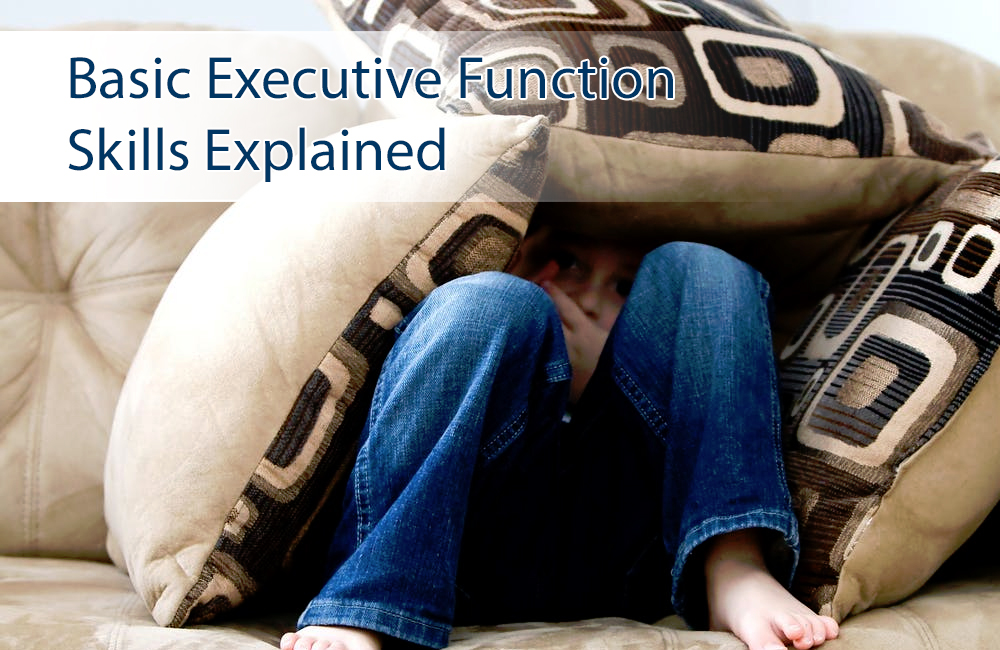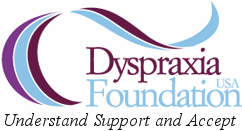Basic Executive Function Skills Explained
Effective Function skills are an important part of everyone’s life. We use them all day every day. We all have a limited amount of energy to use to them before they need to recharge, which is why we all lose our tempers at a time or forget to buy milk or our homework at school. Young teens who are practicing these skills are learning self-regulation and independence while they are developing important brain structures that will support much needed lifelong EF skills. A National Institute of Mental Health study suggests a use it or lose it process may be occurring in the brain. So practicing these skills is important.
So what are these skills exactly? Here are definitions (according to Drs. Dawson & Guare) and some examples where students are using these.
Working memory is the ability to hold information in memory while performing complex tasks. It incorporates the ability to draw on past learning or experience to apply to the situation at hand or to project into the future. An example would be recalling the steps to a science lab while writing up lab notes.
Planning/prioritization is the ability to create a roadmap to reach a goal or complete a task. It also involved being able to make a decision about what is important to focus on and what is not important. An example would be the ability to decide to do a science project that is due before a book project is due, even though your student may enjoy Language Arts class more than Science.
Organizing is the ability to create and maintain systems to keep track of information or materials. In other words, a home for everything and everything in its home. Maintaining the systems is the key. Having a messy room is not necessarily a sign that your child/teen isn’t organized. It is more a sign of him/her being in control of part of his/her life. My teens have a couple of rules; no food and laundry must make it into their hamper. My advice is to close the door so you can’t see it. If your teen truly can’t find his belongings then get help but if they can let it go.
Time management or productivity is the capacity to estimate how much time one has, how to allocate it, and how to stay within time limits and deadlines. It also involves a sense that time is important. I have seen a huge increase in students who can’t tell time on analog clocks. Be sure your child/teen can. Without being able to tell time, students don’t understand the passage of time and therefore, can’t estimate how long tasks take them. An example would be knowing that math homework takes 20 minutes while writing an essay takes 40 minutes on average for him.
Metacognition is the ability to stand back and take a bird’s eye view of yourself in a situation, to observe how you problem solve. It also includes self-monitoring and self-evaluative skills. An example would be understanding personal space or appropriate conversation.
Response inhibition is the capacity to think before you act. This ability to resist the urge to say or do something; allows for the time to evaluate this situation and how this behavior might impact it. I don’t think an example is needed here; if you have a kid especially a teen you have seen how this skill is still developing.
Emotional control is the ability to manage emotions to achieve goals, complete tasks, or control and direct behavior. For an example would be when your child/teen can stay calm even when you have told him something disappointing or upsetting.
Sustained attention is the capacity to keep paying attention to a situation or task in spite of distractibility, fatigue or boredom. An example would be reading a book for language arts class even if your student isn’t enjoying the book and finds it boring.
Task initiation is the ability to begin projects or task without undue procrastination, in an efficient or timely fashion. An example would be when a student starts her homework at a routine time with being told or nagging.
Goal-directed persistence is the capacity to have a goal, follow through to the completion of that goal, and not be put off or distraction by competing interests. Really this is being able to move forward daily towards a bigger goal like going to college. For example, staying focused in high school, even in classes a student doesn’t like, so she can receive a good grade to support her GPA helping to gain acceptance to college.
Flexibility is the ability to revise plans in the face of obstacles, setbacks, new information, or mistakes. It relates to an adaptability to changing conditions. Just going with the flow. An example is when a student can think of alternatives when original plans don’t work out.
Here are good things to keep in mind (especially when your tween or teen is challenging at home)
- We all selective apply these skills.
- EF skills are not consistent. Using them uses up energy that can actually be measured.
- EF skills work together.
- It is a question of not “Do I have the skill to” but…. “Do I have the ability to access the skill at that moment?” Often after school, student don’t.
- If your child/teen has stress, anxiety, or depression is will affect her EF skills.
- EF deficiencies often interfere with one’s ability to demonstrate intelligence.
Hopefully, this blog will bring some peace to your home.


Big Bang Coaching, LLC provides coaching for the neurodiverse.




